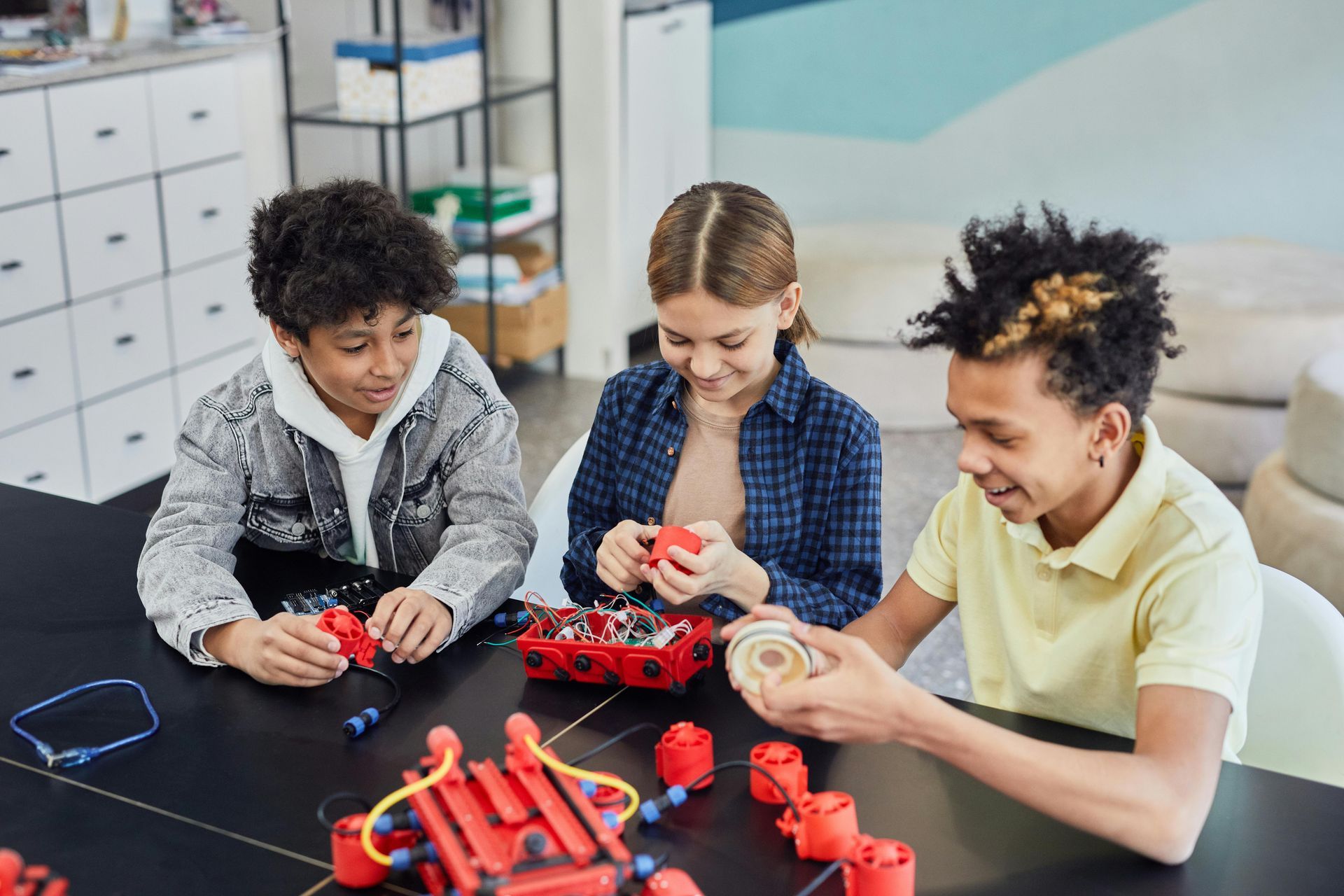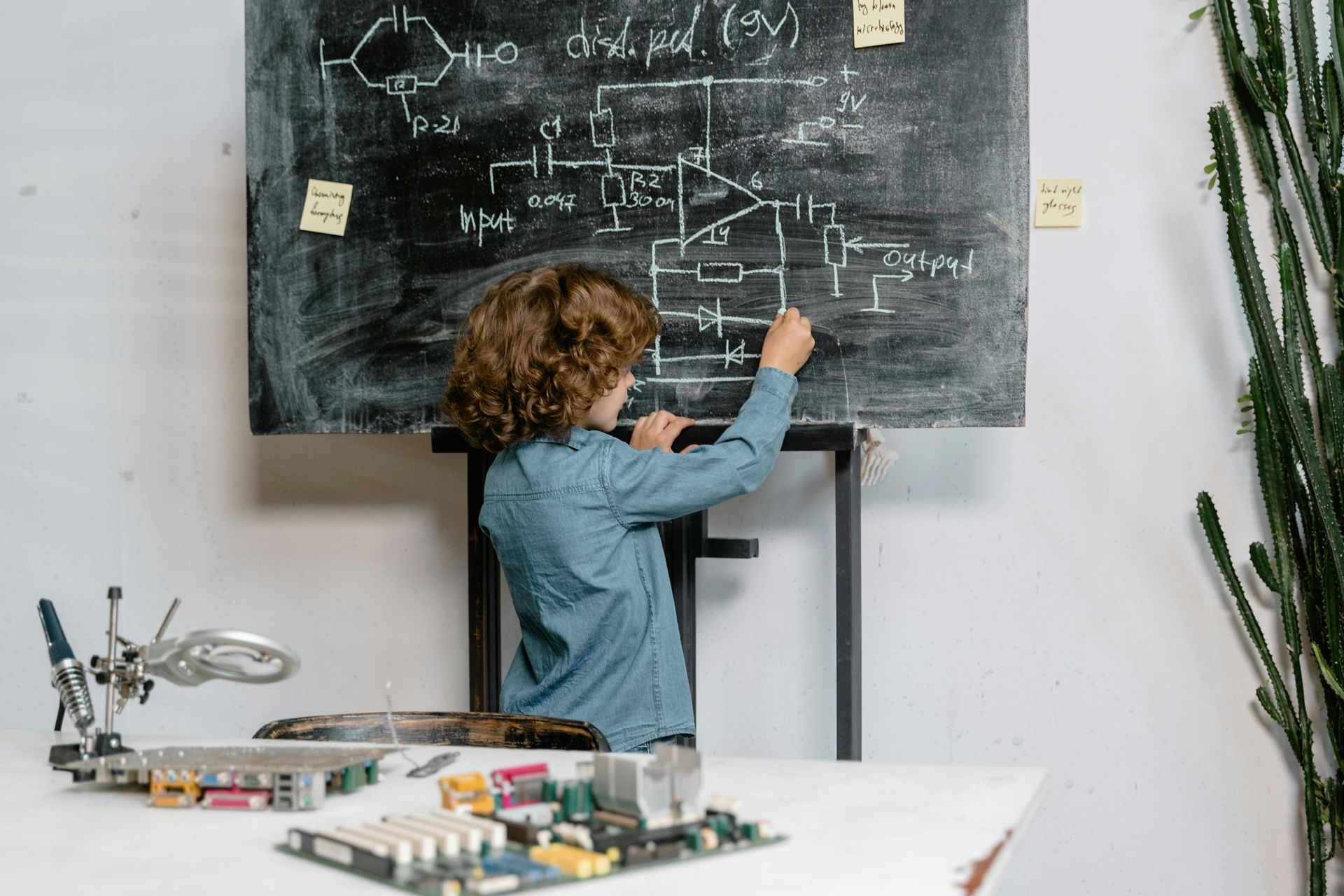The Benefits of Inclusive Education at Mt. Sinai CDC

What Is Inclusive Education?
Inclusive education is more than just a teaching strategy—it’s a philosophy that ensures every child, regardless of their abilities or challenges, is included in the learning process. At Mt. Sinai Children’s Development Center (CDC), we wholeheartedly embrace inclusive education because we believe that every child deserves the opportunity to learn and grow in a supportive, diverse environment.
Inclusive education means that children with a variety of backgrounds, abilities, and needs—whether they have developmental delays, physical disabilities, or simply require extra support—are educated together, rather than being separated into different classrooms. This approach fosters a community where all children are valued, supported, and encouraged to reach their full potential.
In this blog post, we will explore the benefits of inclusive education for both children with special needs and their peers. We’ll highlight how Mt. Sinai CDC creates an inclusive environment that benefits all children and why inclusive education is a vital component of early childhood development.
Creating a Diverse and Supportive Learning Environment
Inclusive education at Mt. Sinai CDC is about creating a learning environment where diversity is celebrated and every child’s unique strengths are recognized. We believe that each child brings something special to the classroom, and by embracing this diversity, we foster a culture of empathy, respect, and collaboration.
To ensure that our classrooms are truly inclusive, we provide a variety of resources, specialized programs, and individualized support to meet the unique needs of each child. From modified learning materials to specialized teaching strategies, we aim to create a learning environment where every child can thrive. But inclusivity isn’t just about accommodating different needs—it’s about creating an atmosphere where children learn from one another, building a sense of community and shared experience.
1. Fostering Empathy and Social Skills
One of the most profound benefits of inclusive education is the development of empathy. When children are taught alongside their peers with different abilities, they learn to understand and appreciate the diverse experiences of others. This helps children develop important social skills like cooperation, communication, and conflict resolution.
In an inclusive classroom, children are not only learning academic skills but also the importance of treating others with kindness and respect. Whether they are collaborating on group projects, sharing toys, or simply engaging in daily conversations, children in inclusive settings have the opportunity to learn how to navigate social interactions in a positive way.
At Mt. Sinai CDC, we intentionally design activities and projects that require cooperation and teamwork. For example, during group play, children work together to solve problems, share resources, and take turns. These experiences help children learn to value diversity and create lasting friendships based on mutual respect and understanding.
2. Improved Academic Outcomes for All Children
Inclusive education benefits not only children with special needs but all children in the classroom. Research has shown that students in inclusive classrooms tend to perform better academically than those in more segregated settings. The diverse classroom environment encourages all children to challenge themselves, as they learn to collaborate with peers who may have different strengths.
For children with special needs, being part of an inclusive classroom provides access to a wider variety of learning experiences and peer interactions that enhance their educational development. They are exposed to a higher level of academic content, and their peers provide invaluable models for social behavior and academic achievement.
For typically developing children, inclusive education creates an environment where they are encouraged to practice patience, flexibility, and problem-solving. Working alongside children with different abilities teaches them how to communicate more effectively, adapt to different learning styles, and appreciate individual differences. These experiences contribute to improved academic and personal growth.
3. Promoting Positive Behavioral Development
Children in inclusive classrooms also tend to exhibit more positive behaviors. This is because inclusive education emphasizes mutual respect, emotional regulation, and understanding of different perspectives. As children with and without special needs interact, they develop a sense of community and accountability.
For children with special needs, being in an inclusive environment helps them learn appropriate social and emotional responses. They are surrounded by typically developing peers who model positive behaviors such as turn-taking, kindness, and problem-solving. By interacting with peers who are socially competent, children with special needs are more likely to adopt similar behaviors.
For typically developing children, inclusive education fosters a sense of responsibility and leadership. They learn to support their peers, whether by helping a child with a learning disability or collaborating with a child who is new to the language. These positive interactions promote an overall healthy classroom environment, where positive behavior is encouraged and reinforced.
4. Breaking Down Stigmas and Stereotypes
One of the most important benefits of inclusive education is that it helps break down stigmas and stereotypes about disabilities. When children with special needs are included in the classroom, they are seen as individuals with unique abilities and potential. This challenges the notion that children with disabilities are “different” or “less capable” and promotes a more inclusive and accepting mindset.
At Mt. Sinai CDC, we actively work to educate children about the value of inclusion and the importance of accepting others regardless of their differences. Through storytelling, classroom discussions, and group activities, we foster an environment where every child feels valued and respected. We believe that when children see their peers as individuals rather than labels, they are more likely to grow into empathetic and open-minded individuals.
This inclusive approach also benefits the community at large. As children grow and move through different educational settings, they carry with them the lessons they learned about acceptance, empathy, and collaboration. These lessons extend beyond the classroom and contribute to creating a more inclusive society as a whole.
5. Collaborative Learning Opportunities for Teachers and Families
In an inclusive educational environment, collaboration is key. Teachers, specialists, and families work together to support the child’s individual needs, ensuring that all children are receiving the best possible education. At Mt. Sinai CDC, we take a team-based approach to learning, where educators, special education staff, and parents work closely together to create tailored learning plans that meet each child’s needs.
Collaboration also extends to the classroom, where teachers facilitate opportunities for children to work together in a variety of ways. Group activities, peer tutoring, and collaborative projects ensure that all children have a chance to engage with their peers in a positive and meaningful way.
For families, being involved in their child’s education is crucial to the success of inclusive learning. We encourage active communication between teachers and families to ensure that children are receiving the support they need both at school and at home. Families are encouraged to share their insights and concerns, which helps to create a more individualized learning experience.
At Mt. Sinai CDC, we recognize that both proper nutrition and the power of play are essential pillars in supporting healthy growth and development in young children.
A Commitment to Inclusion at Mt. Sinai CDC
Inclusive education is not just a practice—it is a commitment to creating a learning environment that values and supports every child, regardless of their individual needs. At Mt. Sinai CDC, we believe that by embracing diversity and fostering inclusivity, we are preparing children for a future where they can thrive in a variety of settings.
The benefits of inclusive education are clear: it helps children develop empathy, improves academic outcomes, promotes positive behaviors, and breaks down harmful stereotypes. More importantly, it creates a classroom environment where every child feels valued, respected, and capable of reaching their full potential.















